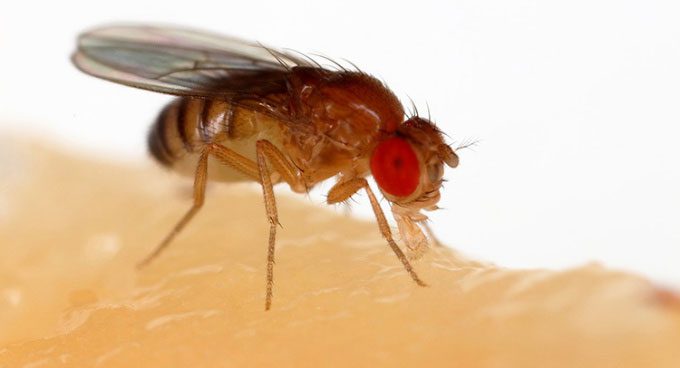Male fruit flies inject a chemical into females that prevents them from waking up early to mate with other males in the morning.

A fruit fly (Drosophila melanogaster). (Photo: Sanjay Acharya)
A team of scientists from the Bariloche Atomic Center and the Leloir Institute in Argentina discovered that male fruit flies inject a chemical into females during mating, causing them to fall asleep immediately afterward and preventing them from mating with other males. The new study, published in the journal PLOS Genetics on December 22, describes how they studied the reproduction of fruit flies (Drosophila melanogaster) in the laboratory using a webcam.
Previous research indicated that during mating, male fruit flies transfer a peptide into the female’s body along with sperm, which reduces the female’s attractiveness to other males. Earlier studies also showed that fruit flies in the wild wake up about one or two hours before sunrise, a common time for mating to occur.
In the new study, the scientists examined these behaviors more closely from the perspective of the male flies. They raised a colony of fruit flies in a controlled light environment and then installed a webcam to monitor their activities over four days.
Through the video footage, the team was surprised to find that females capable of “predicting morning” and waking up early had not mated yet. In contrast, mated females continued to sleep until the first light appeared, startling awake. “In mated females, the ability to predict morning is completely eliminated,” said Sebastian Risau Gusman, a researcher at the Leloir Institute.
Suspecting that the peptide injected by male fruit flies was responsible for the drowsiness, they deactivated the neurons responsive to the peptide in some female flies, allowing them to mate with males before repeating the experiment.
The researchers’ hypothesis was confirmed when the female flies with deactivated neurons woke up just before the lights turned on, at the same time as the unmated females. This indicates that, in addition to affecting the scent of the female flies to potential mates, the peptide also travels to the brain and influences brain regions related to sleep. The research team concluded that male fruit fly behavior is a strategy developed over time to ensure their successful reproduction.


















































